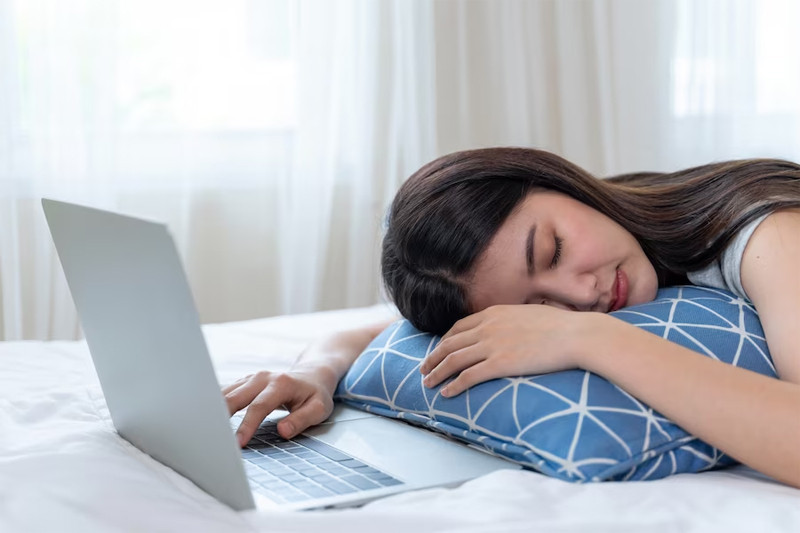Sleep disturbances warn of double stroke risk
If you have trouble sleeping, you're at higher risk for stroke, according to research published in early April in the journal Neurology.
Scientists looked at data from nearly 4,500 individuals worldwide, about half of whom had suffered a stroke. The average age of the participants was 62.
According toFortune, people who slept less than 5 hours a night had a 3 times higher risk of stroke than those who slept the recommended 7 hours for adults. The authors also found that people who slept more than 9 hours had a double risk of stroke.
 |
Poor quality sleep can cause many dangers. Illustration: Free Photo |
Additionally, people who napped for more than an hour had a nearly 90% higher risk of stroke than those who napped for less than an hour.
The authors also noted a link between sleep-related breathing problems and stroke risk. People who snore are 91% more likely to have a stroke than those who don't snore, and people with sleep apnea are three times more likely to have a stroke.
Sleep-related disturbances
According to experts, people with five or more of the following symptoms have a five times higher risk of stroke. These are snoring, apnea, snoring while sleeping; sleeping too little or too much; prolonged napping; poor sleep quality.
Christine McCarthy, a geriatrician at the University of Galway in Ireland, is one of the study's authors. She hopes the findings will prompt doctors to learn more about the risk of stroke in patients with sleep problems.
The secret to a good night's sleep
Experts say if you have these risk factors, there are ways to improve your sleep. In addition to seeking treatment if you suspect you have sleep apnea, the U.S. Centers for Disease Control and Prevention recommends the following steps:
- Have a consistent bedtime and wake-up time, even on weekends.
- Make sure the bedroom is dark, quiet, and at a comfortable temperature.
- Remove all electronic devices from the bedroom, including TVs, computers, and smartphones.
Experts at Harvard University's Department of Sleep Medicine offer some additional advice:
- Avoid using stimulants such as caffeine, alcohol, or nicotine within 4 to 6 hours before bedtime.
- Don't take a long nap.
- Don't eat too close to bedtime. If you still want to eat, avoid foods that will cause indigestion.
- Drink enough fluids before bed to avoid being thirsty, but not so much that you have to wake up to use the bathroom.
- Exercise regularly, but do it 3 hours before going to bed. Exercise can improve sleep quality, but it also stimulates the release of the stress hormone cortisol, which keeps people awake.


